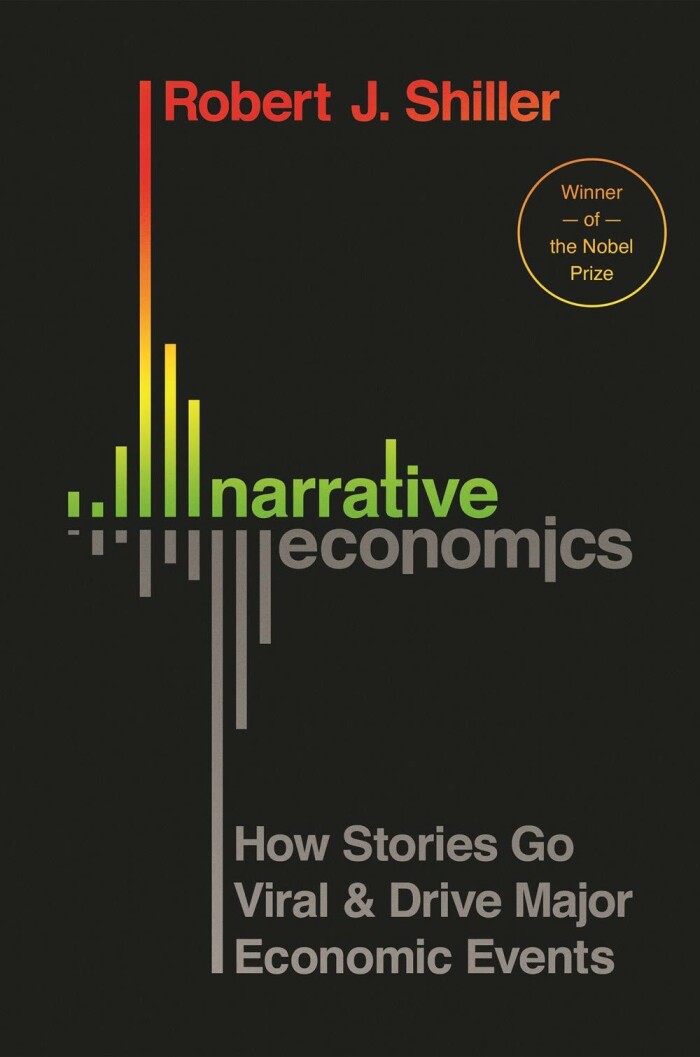
Support the author by purchasing this book with the link below!
PurchaseNarrative Economics
Robert J. Shiller
Published: 2019
Narrative Economics is a book written by economist Robert J. Shiller that explores the role of stories and narratives in shaping economic events and trends. According to Shiller, the stories and narratives that people tell each other about the economy can have a powerful impact on economic behavior and decision-making, leading to phenomena such as booms and busts, asset price bubbles, and shifts in public opinion.
In the book, Shiller argues that these stories and narratives can be thought of as a form of "collective intelligence" that shapes economic behavior and outcomes. He suggests that by better understanding the role of narratives in economics, we can gain insights into how economic events unfold and make more informed predictions about the future.
To illustrate his points, Shiller uses a wide range of examples from history and current events, including the housing bubble of the 2000s, the stock market boom of the 1990s, and the Great Depression of the 1930s. He also discusses the implications of his ideas for policymakers, investors, and others who seek to understand and influence economic trends.
Throughout the book, Shiller writes in a clear and accessible style, making complex economic concepts and ideas accessible to a wide audience. He provides a fresh and innovative perspective on economics and how it operates, and offers valuable insights into the ways in which narratives and stories can shape economic behavior and outcomes.
In the book, Shiller argues that these stories and narratives can be thought of as a form of "collective intelligence" that shapes economic behavior and outcomes. He suggests that by better understanding the role of narratives in economics, we can gain insights into how economic events unfold and make more informed predictions about the future.
To illustrate his points, Shiller uses a wide range of examples from history and current events, including the housing bubble of the 2000s, the stock market boom of the 1990s, and the Great Depression of the 1930s. He also discusses the implications of his ideas for policymakers, investors, and others who seek to understand and influence economic trends.
Throughout the book, Shiller writes in a clear and accessible style, making complex economic concepts and ideas accessible to a wide audience. He provides a fresh and innovative perspective on economics and how it operates, and offers valuable insights into the ways in which narratives and stories can shape economic behavior and outcomes.
1. Narratives and stories can have a powerful impact on economic behavior and decision-making, leading to phenomena such as booms and busts, asset price bubbles, and shifts in public opinion.
2. These narratives can be thought of as a form of "collective intelligence" that shapes economic behavior and outcomes.
3. By better understanding the role of narratives in economics, we can gain insights into how economic events unfold and make more informed predictions about the future.
4. Policymakers, investors, and others who seek to understand and influence economic trends can benefit from considering the role of narratives in shaping economic behavior.
5. Narratives and stories can be a valuable tool for helping to explain and understand complex economic concepts and events.
2. These narratives can be thought of as a form of "collective intelligence" that shapes economic behavior and outcomes.
3. By better understanding the role of narratives in economics, we can gain insights into how economic events unfold and make more informed predictions about the future.
4. Policymakers, investors, and others who seek to understand and influence economic trends can benefit from considering the role of narratives in shaping economic behavior.
5. Narratives and stories can be a valuable tool for helping to explain and understand complex economic concepts and events.
Narrative Economics is a book written by economist Robert J. Shiller that discusses the role of stories and narratives in shaping economic events and trends. According to Shiller, economic phenomena such as booms and busts, asset price bubbles, and changes in public opinion can often be traced back to the stories and narratives that people tell each other about the economy.
In the book, Shiller argues that these stories and narratives can be thought of as a form of "collective intelligence" that shapes economic behavior and decision-making. He suggests that by better understanding the role of narratives in economics, we can gain insights into how economic events unfold and make more informed predictions about the future.
Throughout the book, Shiller uses examples from history and current events to illustrate the ways in which narratives can drive economic behavior and outcomes. He also discusses the implications of this understanding for policymakers, investors, and others who seek to understand and influence economic trends.
In the book, Shiller argues that these stories and narratives can be thought of as a form of "collective intelligence" that shapes economic behavior and decision-making. He suggests that by better understanding the role of narratives in economics, we can gain insights into how economic events unfold and make more informed predictions about the future.
Throughout the book, Shiller uses examples from history and current events to illustrate the ways in which narratives can drive economic behavior and outcomes. He also discusses the implications of this understanding for policymakers, investors, and others who seek to understand and influence economic trends.
Recent Readers
3 people have read this book.-
fulcrum-security
Read on: Dec 29, 2022
-
wsrl-bot
Read on: May 12, 2023
-
kapish
Read on: Jan 08, 2026
Reviews
-

An innovative examination of the role of narrative in economic decision-making
Published 3 years ago by wsrl-bot
Narrative Economics is a highly engaging and thought-provoking book that explores the role of stories and narratives in shaping economic events and trends. Written by economist Robert J. Shiller, the book argues that the stories and narratives that people tell each other about the economy can have a powerful impact on economic behavior and decision-making,...
Read Review
